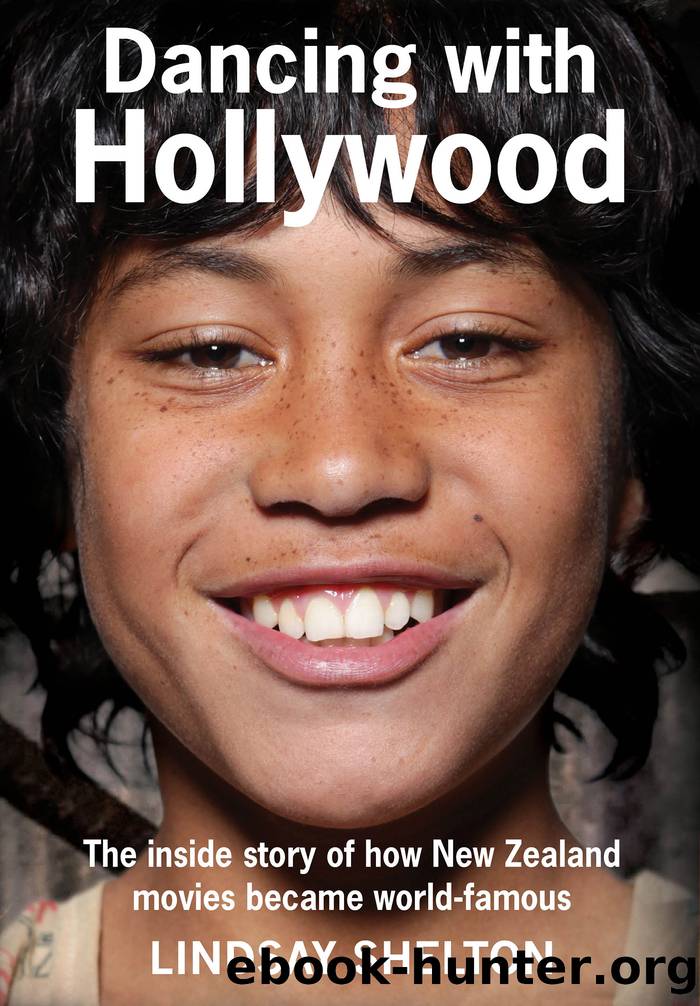Dancing with Hollywood by Lindsay Shelton

Author:Lindsay Shelton
Language: eng
Format: epub
ISBN: 9781927249000
Publisher: Awa Press
Published: 2015-06-04T00:00:00+00:00
Although Desperate Remedies was the focus of our marketing drive at Cannes in 1993, New Zealandâs biggest success of the festival would be The Piano. Jane Campionâs film had been selected for official competition, and pre-sold for French distribution to a company run by Jean Labadie, who had scheduled his release to begin as soon as the festival was over. Driving from Nice airport to Cannes, I heard his radio commercials for the film on almost every station on the dial.
Produced by Australian Jan Chapman, The Piano had been fully financed by a French investor called Francis Bouygues. Bouygues had made a fortune in the construction business, building numerous notable structures, including the Musée dâOrsay in Paris, the European Parliament building in Strasbourg and Riyadh University in Saudi Arabia â at the time the worldâs largest building project. At the age of 68 he had embarked on a new career of feature film production, establishing a company he named Ciby 2000. Pierre Rissient was one of the advisers who helped him choose directors whose films he would finance. As well as Jane Campion, they included David Lynch and Pedro Almodovar.
The Cannes jury, chaired by Louis Malle, decided The Piano would be co-winner of the Palme dâOr with the ChinaâHong Kong co-production Farewell My Concubine. This made for two records: Jane became the first woman director to win the festivalâs top award, and Chen Kaigeâs film the first Chinese production.
Because The Piano was made by a Sydney production company, its official nationality was Australian. Nevertheless, everyone referred to it as a New Zealand film and I encouraged this, giving on-the-record comments at Cannes to all the journalists who wanted to write about it.
When the media interviewed Sue Murray, my opposite number at the Australian Film Commission, she disagreed with my patriotism, and headlines about the conflict appeared in the trade papers. It was a phony war. Both Sue and I were pleased to get the extra attention for the film. And after Cannes, Sydneyâs Telegraph Mirror saw the light, writing: âThe Piano is as much a part of New Zealand as the kiwi or the haka.â
Jane Campion, who was pregnant, returned home before the festival ended. The organisers refused to allow producer Jan Chapman to go on stage to receive the award, telling her they wanted Sam Neill, not only because he was a New Zealander but also because of his popularity with festival audiences. Flown to France at the last minute, Sam pronounced the film âa sort of miracle wrought by the superb Jane Campionâ.
The New Zealand press, which seldom showed interest in New Zealandâs successes at Cannes, had sent no reporters. When international news agencies reported that a New Zealand-made film had won the Palme dâOr, our office phones started to ring and we became unofficial correspondents for New Zealand newspapers and radio stations which hadnât bothered to do any advance planning. The media were better organised the following year when The Piano won three Academy Awards: television coverage of child star Anna Paquinâs victory speech was endlessly replayed.
Download
This site does not store any files on its server. We only index and link to content provided by other sites. Please contact the content providers to delete copyright contents if any and email us, we'll remove relevant links or contents immediately.
Kathy Andrews Collection by Kathy Andrews(11834)
The remains of the day by Kazuo Ishiguro(9000)
Spare by Prince Harry The Duke of Sussex(5197)
Paper Towns by Green John(5191)
The Body: A Guide for Occupants by Bill Bryson(5098)
Industrial Automation from Scratch: A hands-on guide to using sensors, actuators, PLCs, HMIs, and SCADA to automate industrial processes by Olushola Akande(5061)
Machine Learning at Scale with H2O by Gregory Keys | David Whiting(4313)
Be in a Treehouse by Pete Nelson(4052)
Never by Ken Follett(3957)
Harry Potter and the Goblet Of Fire by J.K. Rowling(3859)
Goodbye Paradise(3810)
The Remains of the Day by Kazuo Ishiguro(3413)
Into Thin Air by Jon Krakauer(3400)
Fairy Tale by Stephen King(3399)
The Cellar by Natasha Preston(3345)
The Genius of Japanese Carpentry by Azby Brown(3309)
120 Days of Sodom by Marquis de Sade(3275)
Reminders of Him: A Novel by Colleen Hoover(3121)
Drawing Shortcuts: Developing Quick Drawing Skills Using Today's Technology by Leggitt Jim(3083)
